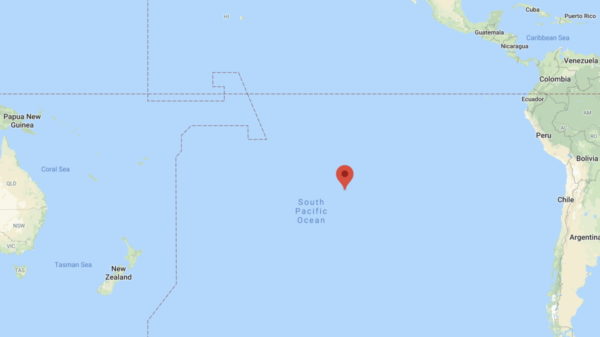Estonia has become a go-to jurisdiction for anyone wishing to do business in the EU thanks to its innovative taxation system and excellent business services. In this article, I cover how to register an Estonian company, how to open accounts with the local banks and financial services companies, process payments, how the taxation system works, how to dissolve and much more.
Some facts
Estonia is a small country located in the Baltic region of the EU. While the country spans over 2222 islands, most of its landmass is on the European mainland. Its population of around 1.3 million makes it one of the least populated EU countries. The official language is Estonian and the official currency is the Euro. English and Russian are also widely spoken. Estonia’s GDP per capita of around 19000€ makes it an upper-middle-income country. In recent years, Estonia has been punching far above its weight in the tech sector with many of its companies becoming famous on the world scene. Its e-Residency program is also having a big impact on the location independence business community.
Registration
Registering an Estonian business is a fairly straightforward process if said business is to only have e-Residents and / or Estonian residents as board members. The process becomes A LOT more complicated otherwise. For this reason, I strongly recommend that all board members apply for e-Residency before registering the company. I have written a guide on e-Residency, you can read it here.
Once that is done, your next step will be to decide whether you want to register your company and handle compliance on your own or whether you want to use the services of an agent. I strongly recommend doing everything on your own as it is very easy. If you do decide to hire the services of an agent, you will likely have to pay around 100 EUR per month and for that price they take care of your bookkeeping, monthly tax returns and VAT payments. They also provide you with a mailing address and will usually help you open a local bank account (by acting as your introducer).
If you decided to register your company on your own, your next step will be to head over to Estonia’s Company Registration Portal. There you can register your company in minutes, with the help of your e-Resident card. The total cost is 190 EUR and it can be paid using an international credit or debit card. Please note that you will need to provide a local mailing address and appoint a local administrative contact person during the registration process. Once the registration is confirmed, you will be able start doing business immediately. If you need a business bank account and a payment processing facility, scroll down to the Banking section of this article for detailed instructions.
If you decided to register your company through an agent, your next step will be to select one and get in touch. Your agent will handle the registration on your behalf and will make you aware of your obligations as a business owner. The total cost will be the standard government fee of 190 EUR plus your agent’s fee. Once your company is registered, your agent will help you open a business bank account by introducing you to a banker with whom they have a good working relationship.
In both cases, the registration process should take no more than 2-3 days. You will not receive paper documents for your company. Instead, you will be able to download a registry card directly from the Business Registry’s website.
Privacy
All information entered into Estonia’s business registry will be publicly available. As such, Estonia is not a suitable jurisdiction for those whose business activities are of a sensitive nature (military, patent holding, adult industry, private security etc).
Banking
Other than its taxation system, Estonia’s banking system is another of its pluses. It is dominated by the big Scandinavian banks with the notable exception of LHV, a local bank famous for being an early adopter of new financial technology. Most banks offer multi-currency accounts, online-enabled debit cards and merchant accounts. Fees tend to be on low side with most banks charging less than 5 EUR per month for business bank accounts. This fee usually includes free SEPA transfers.
Open an account with a local bank
Click on the logos for in-depth guides
Open an account with a financial services company
Click on the logos for in-depth guides
Open a payment processing account
Click on the logos for in-depth guides
Taxation
Estonia’s main selling point as a business jurisdiction is its taxation system. Not because the rates are low, they are not, but because of the way businesses are taxed. In most countries, businesses have to file an annual return and pay corporate income tax on any profits realizedduring the year. In Estonia, businesses are taxed on any profits distributed during the year. In plain English, this means that if a business does not distribute any of its profits, it will not have to pay any corporate income tax. The key here is thus to find ways to access those profits without distributing them. A distribution in the Estonian context can be the payment of dividends, fringe benefits or the reimbursement of expenses not related to the business activities.
The easiest way to get money out of your company tax-free is by paying yourself a salary. Salaries paid to non-residents of Estonia are not liable for taxation in Estonia. Instead, you simply pay personal income tax and social security in your country of residence (or not at all if you reside in a tax haven). While many service providers recommend paying a board member salary (often at a 30/70 ratio), there is no legal requirement to do so.
Another easy way to get money out is through business expenses (they have to be legitimate and verifiable). For example: web hosting, insurance, office, freelancers etc.
Business travel can also be paid by the company, although some categories are subject to a threshold (128 EUR per night for accommodation, up to 50 EUR for food and drinks daily etc).
Complex multi-national structures can also be created, when needed, with assistance from a tax attorney.
In any cases, it is important to understand that all this applies only if your company is a tax resident of Estonia. Please be very careful with this and review any applicable tax treaties for clarification.
Interesting “side” information
The way companies are taxed in Estonia makes them ideal as holding companies, in some circumstances. That is especially true if your country has no CFC rules / equivalent rules OR if it does have CFC rules but none which target Estonian companies. Why use an Estonian company for such purpose instead of a true tax exempt company? Cost is a consideration (Estonian companies are very cheap to run), reputation another, the availability of solid banking services, access to EU markets and I could go on. You could also consider using an Estonian company as a tax-free pension vehicle, especially if you reside in the EU (except for a few countries).
Ongoing compliance
Estonian companies are required by law to file a tax return every month (for the previous month) and to pay any applicable taxes. Companies who are not VAT-registered are only required to file a return if any tax is due for the applicable period. VAT registration is required if the company’s annual taxable turnover is above 40000 EUR.
Dissolution
Dissolving an Estonian company is both easy and straightforward. You will need to hold a board meeting and pass a resolution approving the dissolution. A liquidator will then have be appointed and their name will have to be entered in the Business Registry. A notice will then have to be published in the Ametlikud Teadaanded and all creditors will have to be notified. A final balance sheet will have to be prepared, all assets will have to be distributed and all taxes will have to be paid. Six months later, an application for the company to be struck off the register will have to be lodged. Once this application is approved, the company will be considered dissolved.


































